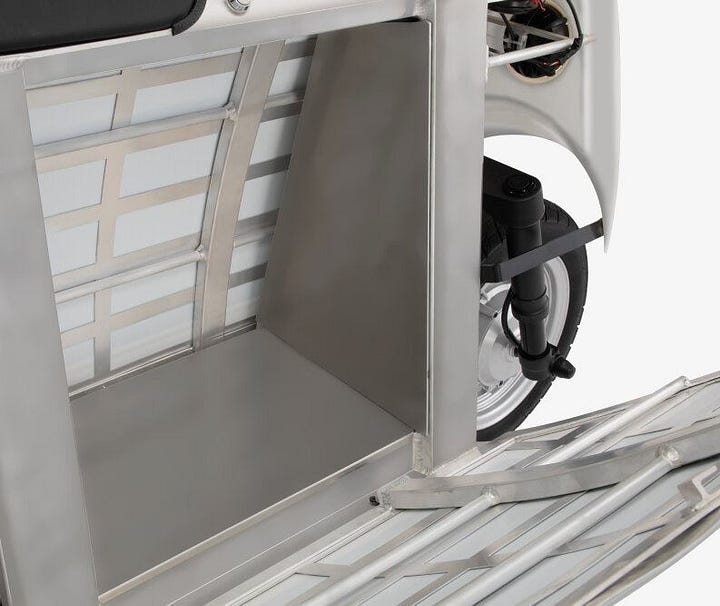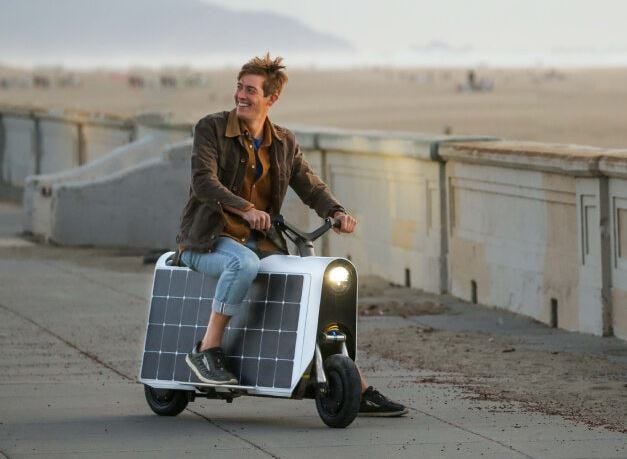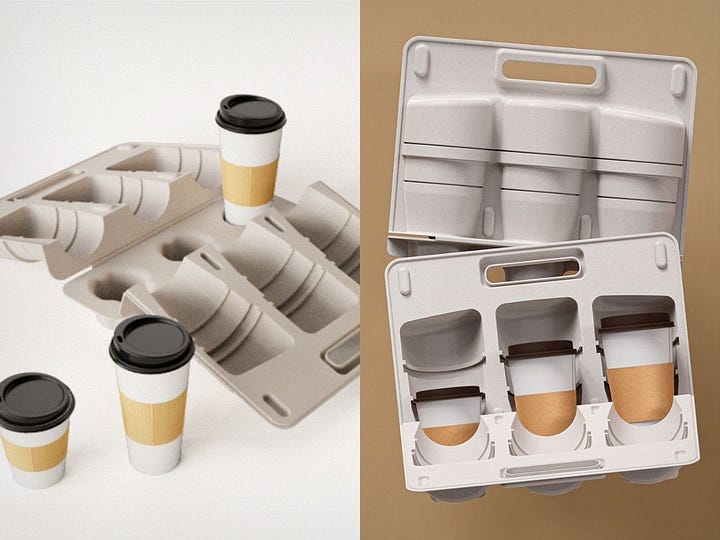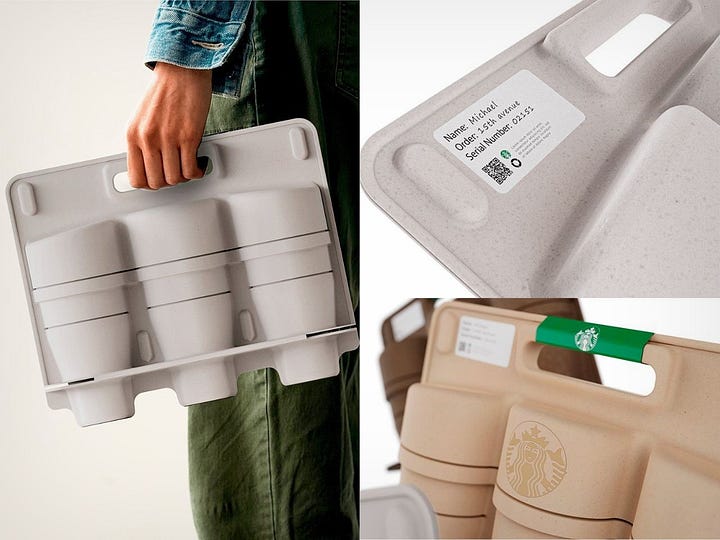Liplid Tackles Plastic & Usability With Innovative Paper Lid
Lightfoot EV Solar Cargo Scooter, Walkers chocolate 100% paper packaging, Ehang Airtaxi Flying First Passengers, Pulp Packaging for Beverage Transport, Carpets Recycled To Make Concrete Stronger
Coffee Cup Paper Lid to Tackles 1.5 Million Tons of Yearly Plastic Waste
PACKAGING/BEVERAGE
Credit Pulpac, Lipid
As businesses continue to seek solutions to the plastic coffee cup lid problem, competition is intensifying. One standout is Liplid, which has developed an innovative lid made from dry-moulded fiber. This new design features a sunken lid that not only helps prevent leaks but also enhances the convenience of on-the-go drinking. It’s a perfect example of how innovation can both reduce plastic waste and improve the overall user experience in a single solution.
The technology behind Pulpac offers several unique advantages, including superior structural strength, the ability to create undercuts, de-nesting during production, and precise control over material thickness. In addition to these functional benefits, the technology also significantly conserves water and energy resources. This represents a gold standard in packaging design, and we hope to see more companies adopt this material and technology in the future.
Read More
Lightfoot Cargo Scooter With Solar Charging Provides Extra Distance
AUTOMOTIVE/INNOVATION


Credit LightFoot
The Lightfoot is a solar-powered electric cargo scooter designed by Otherlab, offering a sustainable and efficient solution for city commuting and cargo transport. This compact scooter that resembles a power pack with wheels features two large solar panels that not only power the scooter but also serve as doors for the vehicle's lockable, weatherproof storage compartment. The scooter has a 37-mile range, and an additional 18 miles of range per day from the solar panels. The design is modular, allowing for easy maintenance and repairs, and it recharges in 90 minutes using a standard wall plug. With increasing populations, this is a great solution for future mobility in cities around the world.
Read More
Walkers Chocolates Go 100% Paper Packaging
PACKAGING/SUSTAINABILITY
Credit Walkers
Walkers Chocolates (UK) is shifting to 100% paper wrappers for its Turkish Delight and Mint Cream chocolate products, making them fully kerbside recyclable. Unlike traditional paper packaging that often contains polyethylene, the new wrappers can be recycled with other paper items in regular curbside collections. This innovation, developed by EvoPak, uses a new material called Hydropol, a polymer created by Aquapak, which replaces conventional plastic liners. Hydropol helps keep the chocolate fresh, provides oxygen protection, and works with standard packaging equipment while remaining recyclable and compostable. Great to see brands exploring and leading the way in alternative packaging material solutions.
Read More
Ehang Airtaxi Flying First Passengers in Thailand
AEROSPACE
Credit Ehang
EHang, a Chinese flying taxi company, has conducted its first passenger flights in Thailand with a pilotless electric vertical takeoff and landing (eVTOL) vehicle. The company plans to conduct further flight tests and launch commercial operations in Phuket and Koh Samui by 2025. As part of its urban air mobility (UAM) mission, EHang carried several passengers, including executives from local partner Sky Image Tech and Bangkok Airways. The company aims to use its eVTOLs for services like island-hopping in Thailand, where traditional water transportation is often slow.
Read More
Pulp Packaging for Beverage Transport
PACKAGING/SUSTAINABILITY


Credit Nos Design
A new creative and innovative, compostable paper pulp briefcase designed by Nos Design Consultancy to transport hot and cold drinks while keeping them secure and temperature-stable. The briefcase features a stackable, clamshell structure that optimizes space, making transportation more efficient and reducing fuel usage. The briefcase is not only spill-proof but also reusable, significantly cutting down on single-use packaging and its environmental impact. Made from recyclable paper pulp, the design offers an eco-friendly alternative to traditional drink carriers, with the added benefit of natural insulation to retain beverage temperatures. A great design that helps businesses reduce waste while ensuring beverages stay fresh.
Read More
Carpets Recycled To Make Concrete Stronger
MATERIAL/SUSTAINABILITY
Credit RMIT University
Engineers at RMIT University (AUS) have developed an innovative way to strengthen concrete using discarded carpets and other textiles, offering a solution to the costly problem of cracks in reinforced concrete structures. The technique, which uses waste carpet fibers, can reduce early-age shrinkage cracking in concrete by up to 30% and increase its strength by 40%, improving both durability and safety. The project, which involves partnerships with Textile Recyclers Australia, Godfrey Hirst Australia, and local councils, aims to address the environmental issue of textile waste, as Australia is one of the world’s largest textile consumers and discards large amounts of textiles annually. This research showcases how we can both change our thinking around waste and reuse valuable materials in other products.











